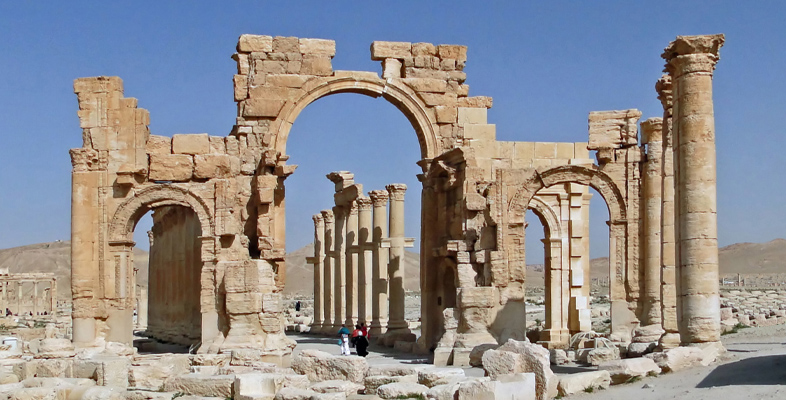Week 2: Cultural heritage in war
Introduction
In Week 1 you studied the Notre-Dame fire and explored some arguments both for and against the plans to restore it. One argument tried to justify the restoration on the basis of the economic benefits that might be produced. Another argument attempted to justify the project with reference to the heritage values of Notre-Dame which would be saved.
Whether it is worth spending our time and resources on heritage values – at the expense of other causes which are directly aimed at saving lives or reducing human suffering – depends at least partly on whether the value of cultural heritage could ever be a higher priority than the value of human life. This is a contentious issue which we did not find a solution to in Week 1.
In addition, if the value of heritage can be weighed up against the value of human lives, exactly what weighting should we give it? How many lives (if any) is a building such as Notre-Dame worth? Questions such as these are not purely theoretical. Governments make such decisions on a regular basis, whenever they draw up budgets and divide funding between the arts and other services such as health care or housing.
Similarly, this week you will see how such decisions can be presented to agents in even more urgent and stressful scenarios. Specifically, when soldiers have to make difficult decisions about the treatment of cultural heritage in wars.
